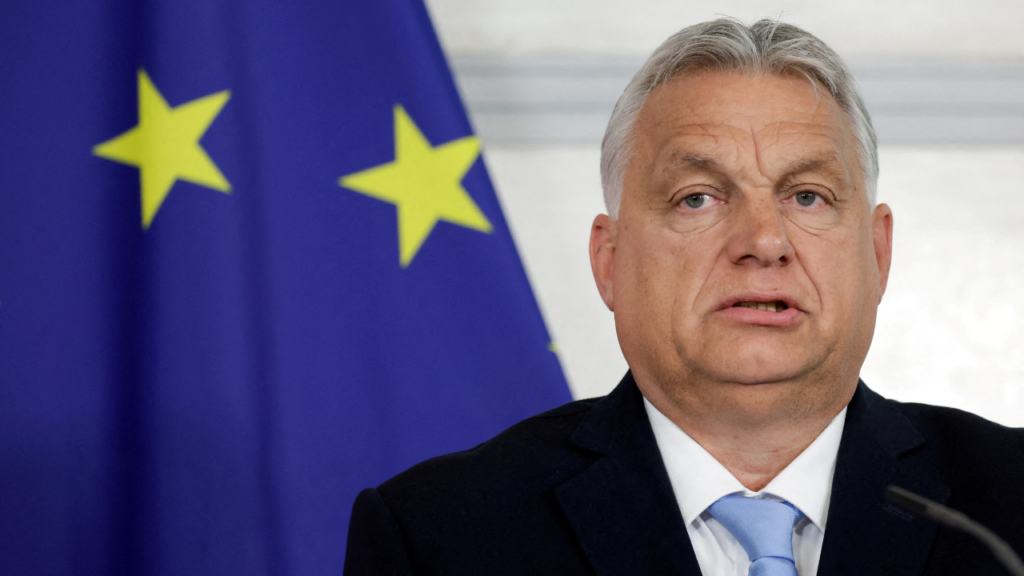Hungary’s nationalist government, led by Prime Minister Viktor Orban, has taken on the presidency of the European Union with a slogan reminiscent of Trump’s “Make America Great Again.” EU lawmakers have expressed concerns about Hungary’s suitability for this role due to clashes with Brussels over democratic norms. The new European Commission and Parliament are still in the process of becoming fully operational, which will restrict Budapest’s ability to drive policy through during this transition phase following the elections in June.
The Hungarian presidency’s role includes setting the agenda, chairing meetings of EU members, seeking consensus among member states, and brokering agreements on legislation with the European Parliament. However, it will take time for the new European Commission and members of parliament to find their stride, meaning that Hungary’s influence on the legislative agenda will be limited until later in the year or even early next year. Despite potential gains by far-right politicians sympathetic to Hungary’s priorities in the EU elections, the presidency’s ability to shape policy is currently constrained.
Hungarian priorities for their EU presidency include pushing for western Balkan membership, addressing illegal migration, and promoting economic competitiveness. However, critics have pointed out that Hungary’s enlargement push does not include Ukraine, with Hungary blocking or delaying funds and arms for Ukraine while maintaining ties with Moscow. Hungary has also criticized EU efforts to reduce dependence on China. Ahead of taking on the presidency, the EU rushed through new sanctions against Russia and launched membership talks with Ukraine, suggesting a complex and potentially contentious agenda for Hungary’s leadership.
Some analysts believe that Hungary’s presidency launch indicates a potential for pushing a nationalist agenda, with right-wing rhetoric likely to prevail on issues such as migration, the Ukraine war, and the rule of law. While certain priorities such as competitiveness may resonate with other EU member states, they are expected to be overshadowed by far-right elements in Hungary’s narrative. Overall, the presidency of Hungary is seen as having a mixed narrative, with a focus on issues that align with the EU’s goals but with a dominant presence of right-wing rhetoric that may challenge consensus within the bloc.
As Hungary takes on the EU presidency, there is a sense of uncertainty and skepticism regarding the government’s ability to fulfill its duties as an honest broker. Concerns over Hungary’s clashes with Brussels over democratic norms and its history of blocking support for Ukraine and maintaining ties with Moscow have raised questions about the country’s commitment to EU values. The broader political landscape in Europe, including the rise of nationalist and far-right parties, adds further complexity to Hungary’s role in shaping EU policy during this transitional period. Ultimately, the effectiveness of Hungary’s presidency will depend on its ability to balance its nationalist agenda with the broader goals and values of the European Union.

